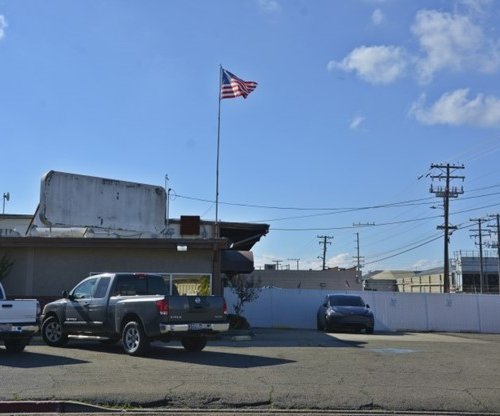A group of concerned Stanislaus County citizens claimed their rural neighborhoods are being overrun by what they say are trucking companies illegally operating on land zoned for agricultural use.
In all, 15 residents discussed their concerns with the county’s General Plan Update Committee, which included supervisors Vito Chiesa (District 2) and Terry Withrow (District 3), along with planning commissioners Wayne Zipser and Carmen Morad. Also in attendance was County Counsel Thomas Boze, plus a host of county personnel. No representatives from any trucking company were present.
“It’s an issue that’s been building based on the number of complaints we’ve received,” said Angela Freitas, director of the county’s planning and community development. “The community is becoming more vocal, and there’s more awareness. As we’ve built these interested-parties lists and continue to have these meetings, the numbers are getting bigger.”
According the county ordinance adopted by the Board of Supervisors in 2012, a use-permit allows for up to 12 (trucks) and 24 trailers on site, as long as the parcel of land is at least one acre in size, with a parking area of no more than 1.5 acres or 50 percent of the entire parcel (whichever is smaller). Additionally, no loading or off-loading or major repairs are permitted on site, and office space is limited to 1,500 square feet.
Home occupations allow for up to three trucks and three trailers, providing the resident/operator lives on site. Again, it must be a parcel of land at least one acre in size, with a parking area of no more than 1.5 acres or 50 percent of the entire parcel (whichever is smaller). No loading or off-loading or major repairs are permitted, and office space is limited to 20 percent of the dwelling.
According to residents, however, the trucking operations are exceeding those limits.
“We’re seeing this happen; they’re going to do what is not legal. And, if they can do it legally, that’s what we want stopped,” said Brad Bilson of Turlock. “We watch them do it. They’re going to put a trucking company on this ag land. And that’s what they bought it for. They’ve told us that.”
According to resident Christine Gemperle, one trucking outfit brazenly dumped asphalt millings onto her property.
“And when I asked them to stop, they brought in five more trucks while I was on the phone with the county,” said Gemperle. “While I was standing there. It was humiliating. Like I was a piece of garbage.”
Chiesa, who farms nuts in the region, and Withrow proposed forming an ad hoc committee to delve further into the issue, suggesting that they, along with Zipser and Morad, make up the that committee. Government, however, is rarely that easy, and the plan must go before the full Board of Supervisors and Planning Commission before an ad hoc committee can be made official.
A Bay Area resident named Brooke, who was in attendance with her son Liam, is a former Stanislaus County resident and the daughter of a current resident. She wondered if the next step isn’t for trucking companies to purchase parcels of prime ag land and pave over them to accommodate their operations.
“My son is young enough that he might face food insecurities in his lifetime,” said Brooke. “It’s predicted that the world is running out of places to grow food. So, why are the trucks parking in the agricultural section? I don’t understand zoning, but I’m here wondering why they can’t purchase land in the industrial areas?”
According to Boze, the fine for infractions is between $100 and $500 — a figure that drew jeers from the residents. Boze pointed out that to change those amounts would require a change in the law.
“As far as 2022 to present, there has been an intensification in truck-parking operations and complaints,” said a county employee. “In some cases, we’ve heard from their staff, that for some … it’s cheaper to pay code-enforcement fines than to come into compliance.”





